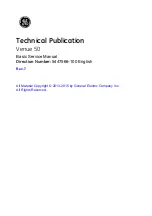
©
National Instruments Corporation
9
SCXI-1141/1142/1143 Calibration Procedure
4.
Verify that the frequency is within the limits shown in Table 2.
Verifying Corner Frequency
Verify the corner frequency by performing the following steps:
1.
Set the calibrator to output a 10 kHz, 1 V
rms
sine wave.
2.
Verify that the DMM output is within the values shown in Table 3.
Verifying Passband
Verify the passband by performing the following steps:
1.
Set the calibrator output to a 1 V
rms
sine wave at the frequency
specified in Tables 4, 5, or 6.
2.
Verify that the DMM output is within the bounds specified by
Tables 4, 5, or 6.
3.
Repeat steps 1 and 2 until all test points are verified.
Table 2.
Input Frequency
Module
Lower Limit (kHz)
Upper Limit (kHz)
SCXI-1141
12.5
13.5
SCXI-1142
31.0
33.0
SCXI-1143
17.5
19.0
Table 3.
SCXI-1141/1142/1143 Output
Module
Lower Limit (V
rms
)
Upper Limit (V
rms
)
SCXI-1141
0.9825
1.0201
SCXI-1142
0.6837
0.7331
SCXI-1143
0.6916
0.7765
Table 4.
Passband Test Points for the SCXI-1141
Frequency (kHz)
Lower Limit (V
rms
)
Upper Limit (V
rms
)
5.94
0.9803
1.0143
9.39
0.9803
1.0143





































